We care about the future of our planet through responsible procurement and product range composition in the supply chain
As a retail company, we depend on resources being available in the long term. This also means that the diversity of species and their habitats must be preserved, especially as food production depends on a large number of contributions from animals and plants. METRO therefore supports the goals of the international Convention on Biological Diversity and contributes to the protection of biodiversity. Because on the one hand the resources are directly the product we sell, on the other hand the raw materials are needed for the production of the products we offer and their packaging. Therefore we pay attention to responsible procurement and product range composition.
Buying policy for sustainable sourcing
Our group-wide buying policy for sustainable sourcing of all products defines basic requirements for sustainable supply chain and sourcing management. At the same time, this policy brings together various guidelines that address specific questions relating to individual product and raw material categories. When sourcing products, METRO systematically takes account of sustainability criteria like resource conservation, social impact and transparency. In this way, we strengthen our procurement channels and contribute to improving the sustainability of our range of products.
More information on METRO’s buying policies can be found on our website.
Goals for responsible product range composition
- With the revision of its Fish & Seafood Procurement Policy in 2016, METRO Wholesale has set itself a new goal: by 2020, 80% of the 12 best-selling types of fish and seafood are to have sustainability certification which is recognised by the company. As part of the Global Sustainable Seafood Initiative (GSSI), METRO is lobbying to make the various international certification schemes for sustainable fish comparable with the help of a standard global benchmark tool.
- METRO is committed to only using palm oil from sustainable sources for its own-brand products by 2020. In this respect, the company is guided by the criteria of the Roundtable on Sustainable Palm Oil (RSPO).
- By 2020, a full 100% of the wood and paper used for own-brand products is to come from sustainable forestry.
- METRO intends to stop using eggs from caged hens – including egg as an ingredient in liquid egg products – in its own-brand products in Southern and Western Europe by 2022, and in Eastern Europe by 2025, and to further improve conditions for laying hens by supporting alternative forms of poultry farming like cage-free and free-range.
Fish from sustainable fishery
Fish is becoming ever more significant with regard to the safeguarding of food supplies. Already, billions of people are dependent on the seas as their primary food source. However, fish is not a resource that is available in infinite amounts. Nearly a third of the oceans’ commercially used fish stocks is overfished and about 85% of the commercially used fish stocks is deemed to be used to the maximum degree possible. Stocks are further decimated by illegal fishing and high by-catch rates. As one of Europe’s leading fish wholesalers, METRO assumes a special responsibility and has taken action in various ways:
- METRO offers fish caught using eco-friendly fishing practices which preserve stocks and fish from certified aquaculture. Customers recognise this by the labels of the Marine Stewardship Council (MSC) and the Aquaculture Stewardship Council (ASC). In financial year 2017/18, our sustainable fish assortment in Germany comprised 110 MSC-certified, 12 ASC-certified and 3 certified organic own-brand products, and 1,085 MSC-certified, 48 ASC-certified and 45 certified organic brand-name products.
- 90% of our aquaculture fish and seafood articles sourced in Asia via our International Trading Office are certified by GlobalG.A.P., ASC and/or Best Aquaculture Practices (BAP).
- METRO fosters direct contact with small-scale fishermen and supports them in applying sustainable fishing practices. For example, we purchase fish caught in the Netherlands using the so-called fly-shooting method. This is a more gentle catching method which has no negative impact on the seabed. The nets also remain in the water for a shorter period, which prevents injuries to the fish.
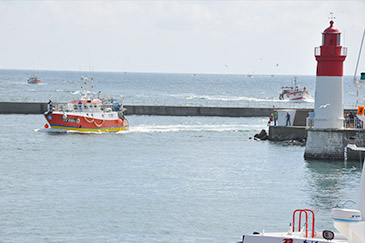
- Our International Trading Office in Concarneau, a seaport town in Brittany, which is also responsible for purchasing fresh fish directly, cooperates closely with fishermen on small fishing boats (‘petits bateaux’). Petits bateaux must not be more than 24 metres long and are often used by small family-run fishing operations. The team at the Concarneau Trading Office (CTO) selects the best local fish early each morning at 15 fish auctions. The most important buying criterion besides excellent quality is whether the fishing method is sustainable: the fish has to have been caught from small fishing boats.
- The demand for fish is particularly high in Japan. At the same time, pressure on stocks is mounting. Aquaculture can offer an alternative when there is no danger of overfishing due to the catching of fry from the seas which are then raised in fish farms. To deal with this problem, METRO Japan works with Kindai University on raising fish from fertilised fish eggs in aquaculture and making the entire process from rearing to selling traceable.
Circular economy
As a matter of principle, we support the further utilisation of resources and their recovery through recycling. Here, the focus is on the issues of packaging and our approach to using conventional plastic. We support closed-loop recycling management to reduce our environmental footprint.
Environmentally friendly packaging
In everyday retail business, packaging is not only used for transporting, preserving and protecting goods. Product packaging also contains information and usage instructions for customers. But packaging also represents a major challenge both in terms of its quantity and the materials used.
We pursue the goal of reducing the environmental impact of the packaging of our own-brand products during the entire life cycle while also meeting the high quality and hygiene standards our customers expect. To do this, we adopted a Packaging Policy in 2013 and revised it in financial year 2017/18. The policy applies to all own-brand product packaging sourced by METRO. We want to develop innovative solutions to improve resource efficiency, for instance by reducing packaging material, increasing the proportion of recycled material used in our packaging, and designing our packaging to improve stacking on pallets and reduce costs for customers.
From September 2014 to September 2018, we
- checked the packaging of 10,949 own-brand products regarding their impact on the environment and – if possible – improved it,
- switched 100% of our SIG Combibloc and Tetra Pak drinks cartons to FSC®-certified packaging (for globally sourced products and in participating countries) and
- replaced 81% of our PVC packaging with more sustainable alternatives (for globally sourced products and in participating countries).
The plastic challenge
In order to make further significant reductions in plastic volumes and therefore in plastic waste, and to use resources as efficiently as possible, we have set new targets: from October 2018 to September 2023, we intend to
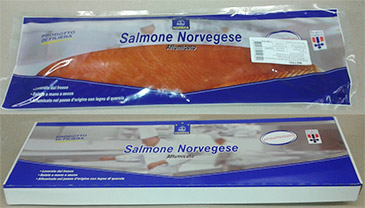
- obtain FSC® or PEFC certification for all card, paper and wood content in primary, secondary and tertiary packaging,
- stop using expanded polystyrene (EPS) in all packaging areas (primary, secondary and tertiary) and
- save 300 tonnes of plastic overall.
In addition, in September 2018, as part of the METRO Plastics Initiative, we and our national subsidiaries committed ourselves to replacing conventional disposable plastics with reusable, recyclable or compostable alternatives by 2025, and to promoting the transition to closed-loop plastics recycling.
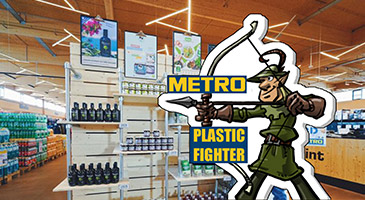
Our International Trading Offices and the local purchasing departments in our METRO Wholesale national subsidiaries help us achieve these targets in a number of different ways. They include the various measures and activities that we grouped under the umbrella of our international#METROPlasticFighter initiative in 2018:
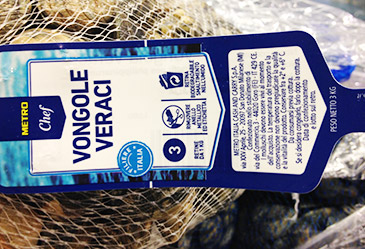
- METRO Italy developed new packaging in 2018 for its own-brand METRO Chef mussels: a net made from biodegradable, compostable material now replaces the previous conventional plastic packaging. Leaflets in the wholesale store inform customers about the sustainable packaging.
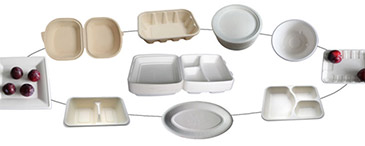
- Many customers in the hotel, restaurant and catering sector use disposable products made from plastic every day, such as disposable tableware and takeaway boxes. Our aim is to offer more sustainable alternatives to these items. One example is the METRO Professional biodegradable disposable tableware that all MAKRO stores in Portugal have been stocking since mid-2018. Another 14 METRO countries have also added these items to their range and they are available in 36 different packs. The products are made from high-quality raw materials like wood, plant fibres, sugar cane and corn starch. We take care to use resources that do not have a negative impact on food production.
Water management along the value chain
We tackle the issue of water management both with our suppliers and our customers, and of course at our own locations.
In order to obtain an overview of water use in our supply chain, we conducted a survey in 2016 and 2017 of a selection of strategic suppliers and producers of METRO’s own-brand products on the risks and opportunities and their management practices and targets.
In 2017, we launched the METRO Water Initiative with the aim of raising awareness of the issue of global water scarcity and contamination among our customers worldwide. We are collaborating on this initiative with reputable brands and manufacturers. From 2019 onwards, we will be taking this work to a new level and cooperating with an NGO called One Drop to give people in India permanent access to clean water.
We raise awareness at our own locations and share good practice.
Local sourcing
Sourcing products from local suppliers has benefits for the environment. The CO2 balance of products improves when transport distances are shorter. The procurement costs are also lower. In addition, post-harvest losses can be reduced and food waste prevented at this stage in the value chain if suppliers are trained to comply with certain standards and make their products marketable, or if products which do not comply with the trade standards are marketed. Examples can be found in the chapter ‘Unfold Prosperity’.
An overview of all key figures and targets in the Planet area of responsibility can be found in the chapter ‘Key Performance Indicators’.